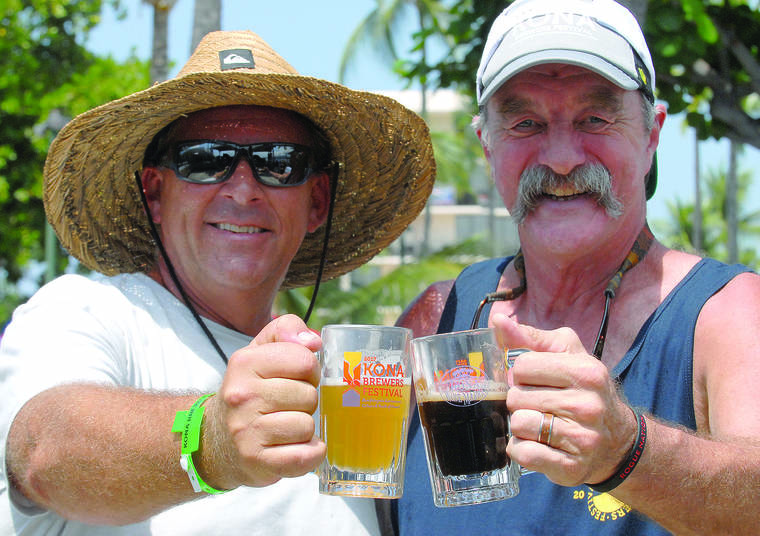Despite a spate of canceled events throughout the state as COVID-19 fears escalate, festivities on the Big Island are forging ahead.
The Kona Brewers Festival will be held Saturday, March 14, at King Kamehameha’s Kona Beach Hotel Luau Grounds where more than 3,000 guests will gather for the 25th annual event.
“We haven’t seen anyone drop out thus far,” said festival spokesperson Amanda Corby. “We are putting a plan in place for extra precautions for attendees.”
Corby said having the festival held outside is in their favor. They will have extra hand sanitizer on hand, providing a sense of safety.
“Our attendees that will be coming to the event are not people that are at high risk. The majority of the people attending the event are healthy people without compromised immune systems,” said Corby. “As this continues to shift, we are trying to abide by what is the best plan to put in place.”
Major public events like the Honolulu Festival and the Festival of Pacific Arts & Culture have been canceled or postponed, Hawaii Public Radio reported Wednesday.
The cancellations have come despite the absence of reported cases of the virus in the state.
Organizers of the Merrie Monarch Festival, to be held next month in Hilo, have said the show will go on, unless directed otherwise by the Department of Health.
Pop star Mariah Carey canceled her March concert in Honolulu, citing global travel restrictions in the wake of the virus outbreak. The promoter confirmed Carey will return in November.
The Hawaii Department of Business, Economic Development and Tourism released its latest twice-weekly count of airline passengers, showing a nearly 23% drop in international arrivals compared to the same week in 2019.
The decline is similar for visitors from Japan, Hawaii’s most important foreign market for tourism and the third most significant source of both visitor arrivals and visitor spending.
So far, officials said, the decline has been limited to international travelers. Two-thirds of visitor spending in Hawaii comes from U.S. visitors and the U.S. Travel Association said domestic travel is still on a growth path.
The global spread of the virus began in Wuhan, China, and one of the first places in Hawaii to feel the effects of the global disruption was Honolulu’s Chinatown.
Chu Lan Shubert Kwock, president of the Chinatown Business & Community Association, said customer traffic to merchants in Chinatown in Oahu is down 30% to 50%.
“We already had four or five big association events cancel. In some business, like restaurants, when we go, they’re empty,” Shubert Kwock said.
State Senate Majority Leader J. Kalani English said lawmakers are looking for ways to minimize the potential economic disruption while also addressing health concerns.
“That’s a delicate balance: the economy versus people’s health,” English, D-Maui, said. “I choose people’s health.”
The Associated Press contributed to this report.






